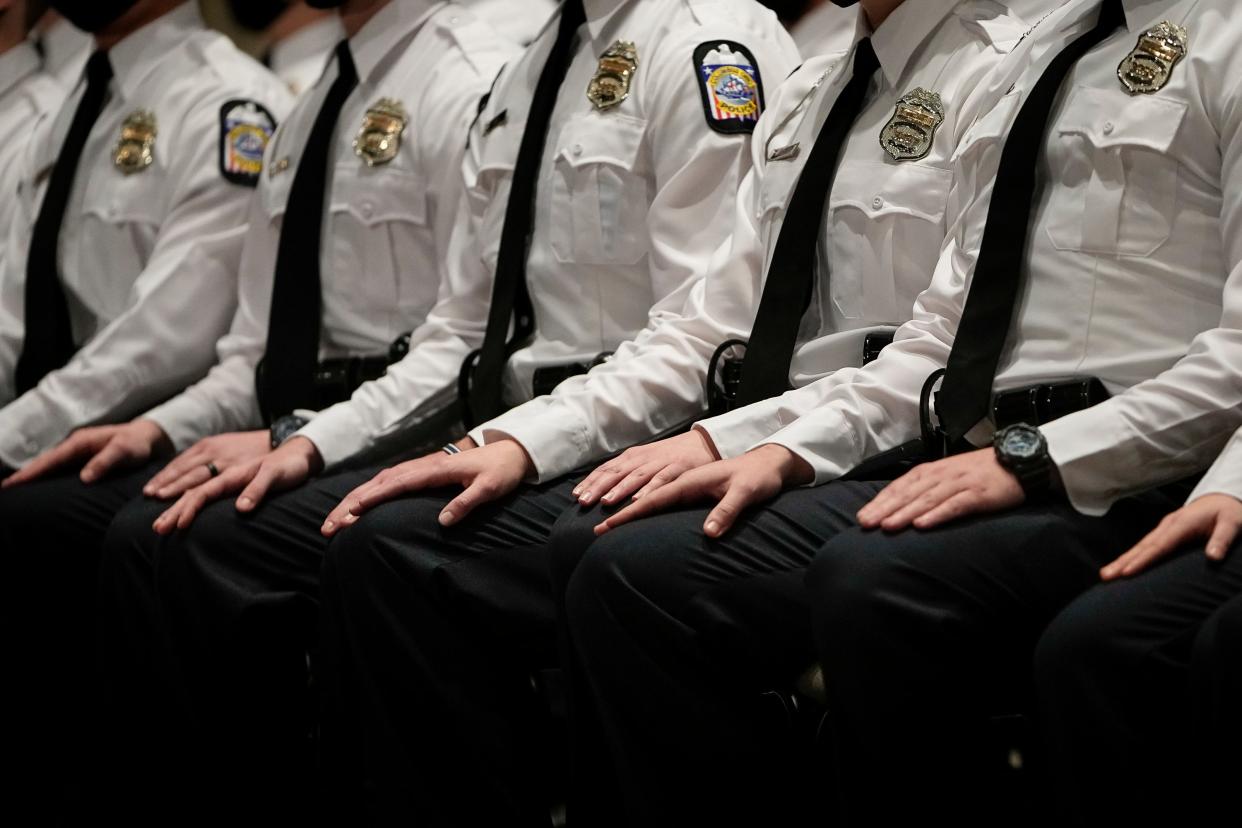Theodore Decker: With homicides down, is the city response once again losing its urgency?

With a third of 2022 behind us, the killing in Columbus has fallen off the breakneck pace that led to a record 205 homicides last year.
Thirty-nine people died at the hands of another person in Columbus through Sunday. By May 1 of last year, 65 people already had been killed in the city.
More: Here's where homicides have occurred in Columbus
This bit of good news, if you can call it that, is tempered by six words spoken recently by Columbus Police Assistant Chief Greg Bodker.
"It may be a challenging summer," Bodker said in a Dispatch story by reporter Bethany Bruner.
By summer's end, Bodker said, a number of experienced officers will have left the division on retirement, most of them as part of a one-time buyout offered by the city. More than 200 officers had applied for it; 100 were approved. And division brass expects at least some of those who weren't approved to retire anyway.
The effect of fewer officers will be felt by residents across the city. In the coming months we can expect slower response times by officers on the street and heavier caseloads for already overburdened detectives.

Division leaders will be forced to pick and choose what services to let slide. Police might, Bodker said as an example, be forced to reduce patrols in city parks.
Can we go without that? Sure, you might think. And then you might remember the still-unsolved shooting death of Olivia Kurtz, the 16-year-old girl killed almost a year ago in Bicentennial Park, or the homicide that occurred at another city park just last month.
Nothing about violence prevention comes easy.
Mayor Andrew J. Ginther announced in February that his administration was declaring gun violence a public health crisis. He said Columbus Health Commissioner Dr. Myshieka Roberts would coordinate with other city departments to address the problem of gun violence from a new, holistic perspective.
For subscribers: Gun violence was declared a public health crisis in Columbus. Here's what that means
In an update last month, Roberts told the Dispatch that her office is laying the groundwork for a number of anti-violence programs that sound promising.
Yet we've heard similar plans being talked about in similar ways for years. Talk to some of the folks already doing such work on their own in Columbus, and you'll hear frustration with the pace of the city's progress on this front.
And then there was this possibly telling development, which slipped by quietly but felt like a red flag if you happened to notice it.
The city's public safety committee promised to share specifics of its anti-violence efforts at a public hearing originally scheduled for last month.
The announcement called the event an "update with residents over what violence prevention, intervention, and disruption programs occurred in 2021, and what programs can be expected in 2022."
Residents were to be afforded the chance to offer testimony at the hearing, but the day before it was to be held, the city postponed it without explanation. It has been rescheduled for later this month.

So what do we know for sure, four months into 2022?
We know the 39 homicides that occurred through May 1, while down markedly from last year, are still the third-highest total for that period in the past six years. Only 34 homicides had occurred by May 1, 2020, and that year that ended with 175 killings.
Based on that alone, we know that things can go south quickly.
That was proven on Sunday, when city police were investigating two new homicides and Franklin County deputies were handling a third in Prairie Township.
We can hope that fewer killings and a postponed progress report from the city don't mean that the administration has shoved its violence-prevention efforts to a back burner, especially knowing that there will be fewer police around to keep a lid on things this summer.
Relegating this particular pot to a back burner is a surefire way to ensure it will boil over.
Theodore Decker is the metro columnist at the Columbus Dispatch. You can reach him at tdecker@dispatch.com or follow him on Twitter at @Theodore_Decker.
This article originally appeared on The Columbus Dispatch: Columbus gun violence: Complacency threatens as killings ebb

